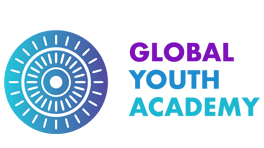Educational program in the Galapagos Islands, Ecuador

Context
The Galapagos Islands make up a unique ecosystem in the world.
The archipelago is today a highly prized natural laboratory for the entire international scientific community due to its great biological diversity and its enormous fragility.
Tourism activity has been an important alternative source of income to the unsustainable fishing that, until years ago, drove the local economy.
Tourism is putting new forms of pressure on the population and on the natural environment of the archipelago that urgently needs to be addressed.
Sustainability, conservation of biodiversity and ecotourism are the three essential axes to guarantee the necessary balance in this unique and delicate environment.
Learning Objectives
1
2
In-depth knowledge of the Galapagos Islands as a natural laboratory in which to observe the laws of evolution through marine habitats and characteristic organisms of the archipelago.
3
Acquisition of principles, objectives and strategies of sustainable development, biodiversity conservation and ecotourism activity as interdisciplinary, transversal and integrating concepts.
4
Developed Activities
The course, adaptable to the academic needs of the students and to the university study plans, is eminently practical, but it also includes theoretical training actions before, during and after the fieldwork to integrate the concepts of the topics addressed.
Each of the habitats and characteristic organisms analyzed will be worked on in the field and in the classroom, to reinforce the concepts and provide practical experiential learning.
Students will learn about ecology, culture, and government management related to the recent tourism boom in the Galapagos Islands and will visit places that illustrate all these areas. In this way, students will experience first-hand the problems surrounding ecotourism and the conservation of the natural environment.
Each day will be a combination of lectures, outings, volunteer and professional internships and the development of their own research project, with which students will identify and discuss the social and environmental problems seen or experienced during the visits.

Expected results
1
2
3
Training
complementary
Global Youth Academy is Lea Global’s e-learning platform that offers training on the United Nations 2030 Agenda and how to adhere, through action, to the different SDGs. All projects include 120 hours of training at the Global Youth Academy, as well as continuous online support on the subject developed.

